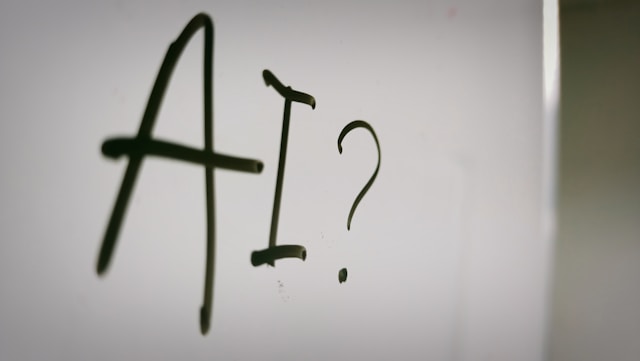Artificial intelligence has made massive strides in recent years. From chatbots that can hold realistic conversations to image generators that mimic human art styles, AI is becoming more integrated into daily life. But despite its rapid evolution, there are still many things AI can’t do. Understanding these limitations is crucial not only for managing expectations but also for making informed decisions about where and how we use AI.
This article explores seven important areas where artificial intelligence still falls short of human capabilities.
1. Understand Human Emotions Deeply
One of the most significant challenges in AI development is emotional intelligence. While some AI systems are programmed to recognize facial expressions or respond to certain sentiment cues, they don’t truly understand emotions. They mimic, not feel.
Emotional complexity varies across cultures, languages, and personal experiences. AI struggles to grasp this nuance. For instance, sarcasm, passive aggression, or conflicting emotions often confuse even the most advanced language models.
In sensitive fields like therapy, education, or leadership, human empathy plays a vital role something artificial intelligence can’t replicate. No matter how advanced AI becomes, the subtlety and depth of human emotion remain out of reach.
2. Exercise Common Sense
Common sense is something we humans take for granted. It’s what tells us not to touch fire, to bring an umbrella when it’s cloudy, or that cats don’t bark. For AI, these seemingly obvious things are anything but.
Although researchers have tried to train AI using vast datasets, artificial intelligence still frequently lacks basic reasoning skills. AI might solve complex mathematical equations, but fail to understand that water makes things wet or that people eat food, not plastic.
This is a fundamental reason why AI applications, such as self-driving cars or virtual assistants, sometimes make bizarre or dangerous decisions. AI lacks a general understanding of the world and how it works outside its programmed instructions.
3. Display True Creativity
AI can generate art, music, stories, and even poetry. But does that mean it’s creative?
Not quite. AI draws from existing data, remixing patterns it has seen before. Human creativity, on the other hand, often involves abstract thinking, intuition, emotional experience, and cultural context. It’s the difference between producing something new versus something novel but derivative.
For example, AI-generated artwork can mimic Van Gogh’s style, but it doesn’t know why Van Gogh painted the way he did. It doesn’t feel inspired, challenged, or emotionally driven. Creativity is deeply human, and this is one of the key things AI can’t do.
4. Handle Ambiguity and Context Like Humans
Humans excel at interpreting vague or incomplete information. We use context, experience, and inference to make sense of things. AI, on the other hand, often gets stuck when faced with ambiguity.
For instance, the sentence “The man couldn’t lift his son because he was so heavy” might confuse AI. Who is heavy the man or the son? While humans use context to figure it out, artificial intelligence might interpret it incorrectly.
This limitation makes AI unreliable in environments where instructions aren’t black and white, such as negotiations, customer service, or storytelling. When AI doesn’t fully understand the context, its responses can be confusing, irrelevant, or even harmful.
5. Make Ethical or Moral Judgments
AI doesn’t understand ethics. It can follow rules, yes but choosing what’s right or wrong based on moral values is far beyond its capabilities.
Consider situations involving life-or-death decisions, like autonomous weapons or medical diagnoses. These require more than logic they demand empathy, ethics, and often legal accountability. AI can’t weigh moral consequences because it doesn’t comprehend the value of human life, suffering, or fairness.
Even AI systems trained on “ethical” datasets often reflect the biases of those datasets. That’s why artificial intelligence can unintentionally perpetuate racial, gender, or cultural discrimination. True ethical reasoning requires human oversight.
6. Operate Without Data
AI is fundamentally dependent on data. It learns patterns from existing information and uses those patterns to make predictions or decisions. When there’s no data or if the data is flawed AI breaks down.
In situations where there’s no historical precedent, like global pandemics or novel security threats, AI has little to rely on. Unlike humans, it can’t make leaps of intuition or hypothesize in the absence of evidence. This makes AI poorly suited for leadership, innovation, and crisis management, where fast decisions often need to be made with little information.
This is a major limitation in fields like healthcare, where unique patient cases arise, or in startup environments where uncharted territory is the norm.
7. Take Responsibility or Show Accountability
Perhaps the most important thing AI can’t do is take responsibility. When an AI makes a mistake whether it’s a misdiagnosis, a car crash, or a biased loan decision who’s to blame? The developer? The user? The machine?
Artificial intelligence does not possess self-awareness, intention, or accountability. It can’t apologize, feel guilt, or learn from mistakes in the way humans do. It can only be updated or retrained by its human operators.
This raises significant ethical and legal concerns. As AI becomes more embedded in decision-making, society must grapple with how to assign responsibility and enforce accountability something AI itself is fundamentally incapable of doing.
Conclusion
Despite all the hype, artificial intelligence is far from being a replacement for human intelligence. Yes, it’s powerful. Yes, it’s fast. But there are still many things AI can’t do especially when it comes to emotional depth, ethical thinking, common sense, and genuine creativity.
Recognizing the limitations of artificial intelligence is just as important as understanding its strengths. As we move forward into a world increasingly influenced by AI, we must remember that the most valuable human qualities empathy, judgment, and imagination remain uniquely ours.

